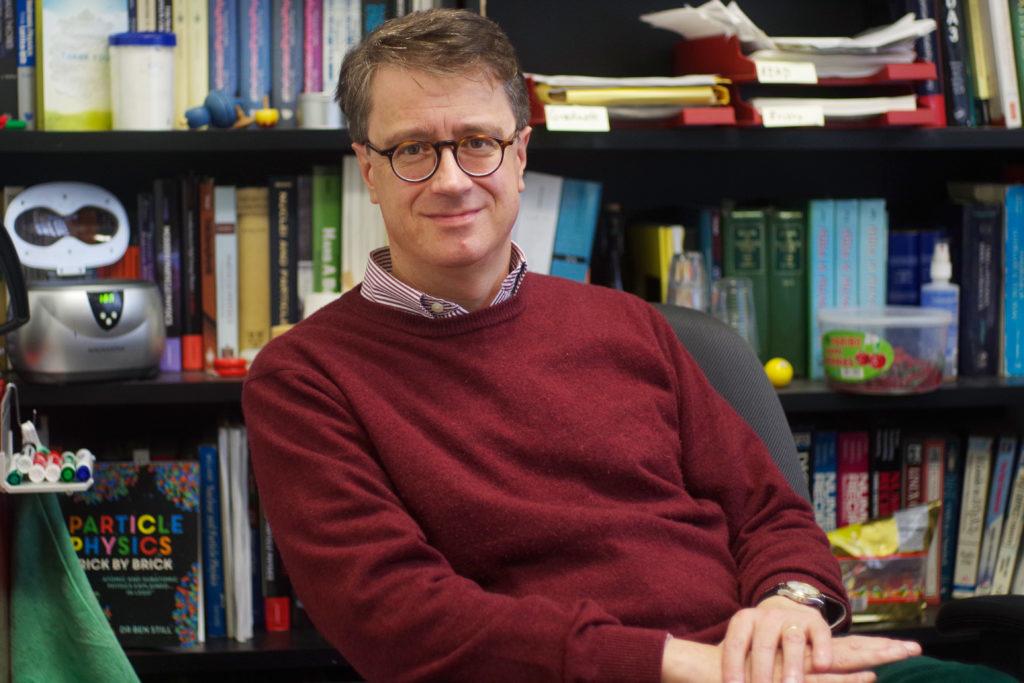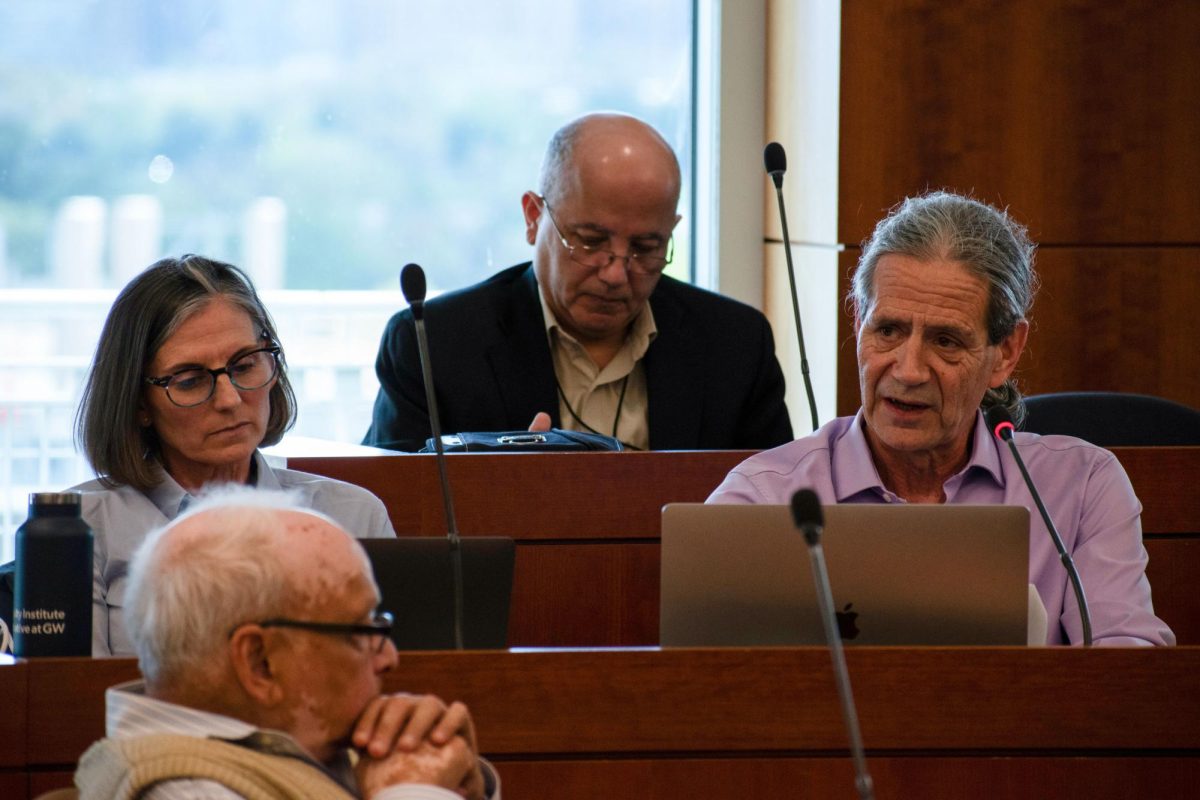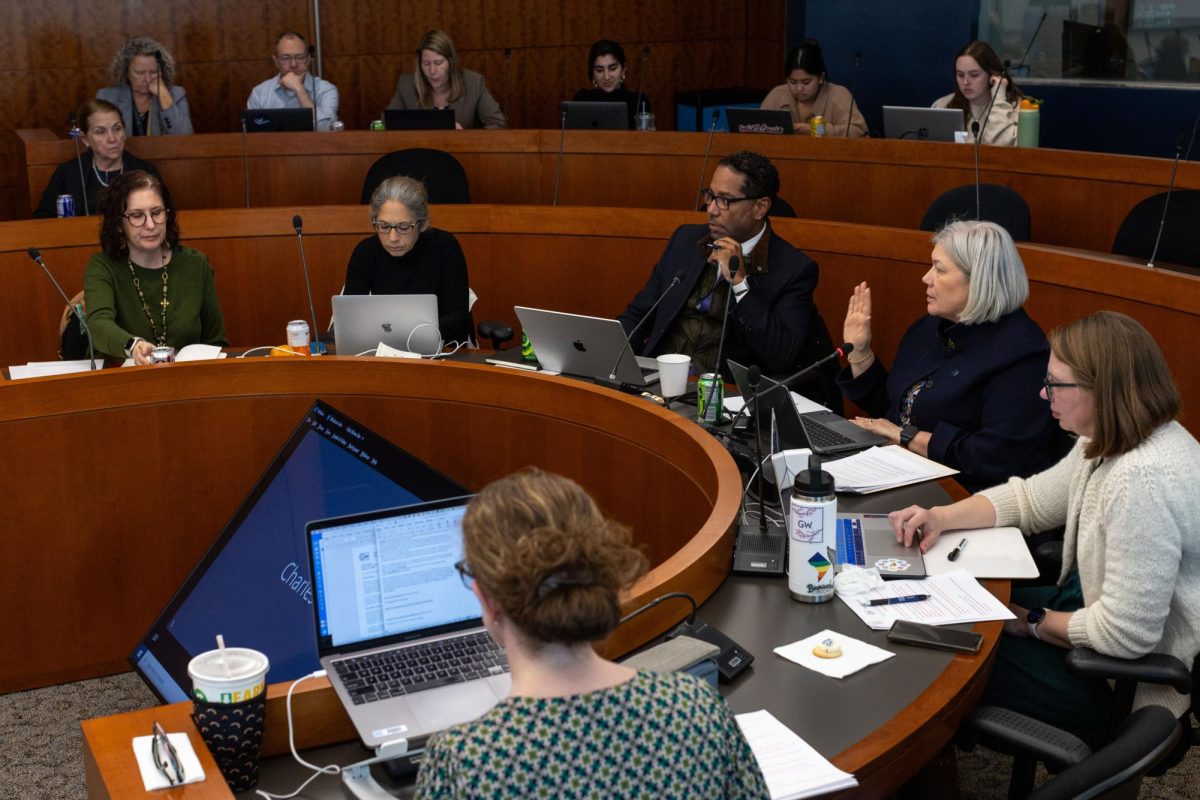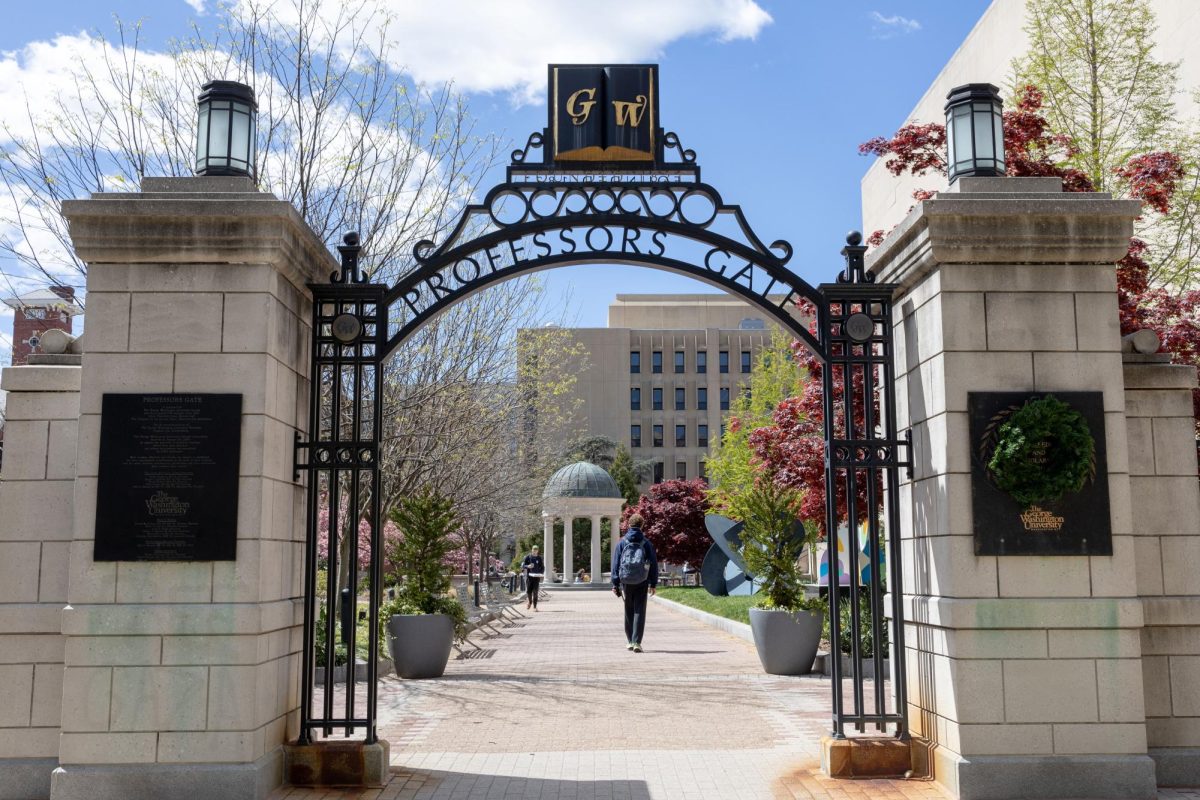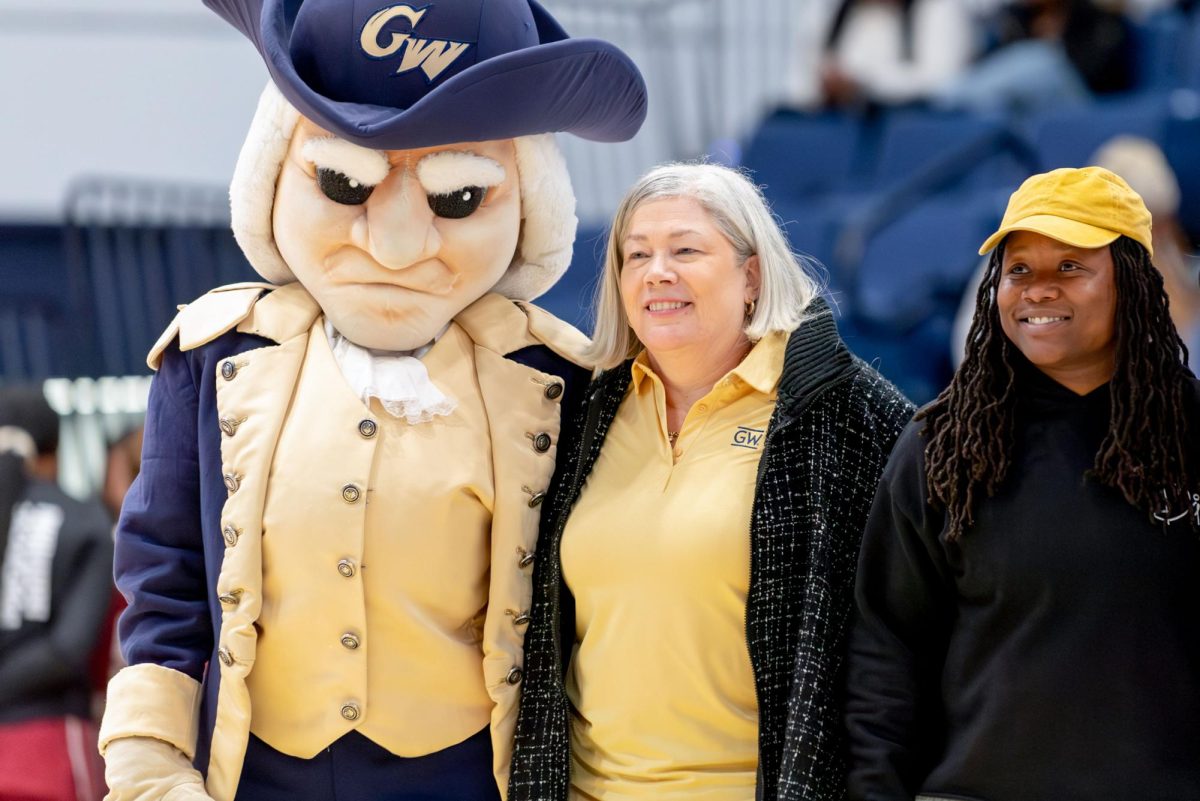More than 20 faculty members have signed a petition demanding more details about several major changes planned to affect GW’s academics and culture over the next few years.
Faculty members are requesting the data that University President Thomas LeBlanc used to decide to reduce undergraduate enrollment, increase the ratio of STEM majors and improve GW’s institutional culture. Professors said they have largely been left out of the decision-making process because administrative decisions are typically made from the top down.
“First, we need to see what the numbers actually are right at this moment,” said Harald Griesshammer, an associate professor of physics and one of the petition’s signatories.
The petition, which will be presented at the Faculty Assembly meeting next week, lists six points that signers want to be included in the meeting agenda.
The first five points call for several Faculty Senate committees to review a series of questions related to LeBlanc’s plans. The sixth point calls for the chair of the senate’s Executive Committee, Sylvia Marotta-Walters, to request a special meeting in January for association members to review the committees’ reports that are compiled throughout the semester.
Fifteen or more assembly members must sign a petition to include an item on the Faculty Assembly’s agenda, according to GW’s Faculty Organization Plan.
The petition’s first point directs senate committees to investigate whether LeBlanc followed the principle of shared governance as laid out in the Faculty Code when rolling out his plan to reduce undergraduate enrollment by about 20 percent and increase the percentage of undergraduate STEM majors to 30 percent.
Griesshammer said LeBlanc’s projection that the academic changes will cost the University $64 million over four years in revenue is the “best-case scenario” but not the only one.
He said he was approached by “a number of people who have positions at the University” and told that officials have considered costlier scenarios than what LeBlanc presented to them. LeBlanc did not respond to a question at the senate meeting earlier this month about which areas of the University will face cuts if GW faces a $64 million budget gap.
“Those scenarios clock in between $25 and $30 million per year, which means we’re looking at $100 or $120 million,” Griesshammer said about the four-year revenue gap estimate. “When he floats the number of 64, there is some creativity.”
He said LeBlanc has not explained to faculty how officials arrived at a $64 million price tag for his plans to cut enrollment and boost STEM undergraduate majors, which is what the petition asks for.
“We’re not asking for new information,” he said. “We’re asking for information that has not been shared among the leadership, that has not been shared with the faculty.”
Bernard Wood, a professor of human origins and one of the petition’s signatories, said the decrease in enrollment will cause fewer classes to be offered to students, which, along with a STEM increase, will lead to a “less diverse and interesting” University.
“Those of us who are concerned seem to have very limited options of how to make, perhaps, the Board of Trustees aware of how much concern there is about the direction that the president’s taking the University,” he said.
Wood said the petition’s second item requests that four committees investigate the costs associated with GW’s partnership with the Disney Institute to improve GW’s institutional culture and of the objectivity and “scientific” validity of the institute’s survey, which officials administered to employees last fall.
He said that after officials administered the survey, they invited Disney staff to issue recommendations on how to improve GW’s culture. But Wood said many faculty felt as though they had not been adequately included in the process to develop solutions to the University’s issues.
“We were concerned about the decisions that have been made, apparently with consultation, but I think it’s very difficult to find anybody who feels they were meaningfully consulted about these things,” Wood said.
Administrators solicited recommendations on how to improve GW’s culture from work teams composed of faculty and officials, which led to the development of a series of trainings and a service ambassador program.
Guillermo Orti, the Louis Weintraub professor of biology and one of the petition’s signatories, said the petition’s third point directs four committees to study the data officials used to decide to cut enrollment and increase the STEM ratio to determine whether assembly members reach the same conclusions as officials have.
Orti said the University employed consultants to collect data about the two changes that were never shared with faculty.
He said the fourth point requests that senate committees consider if the four committees organized to plan for the four pillars of GW’s next strategic plan and the central strategic planning task force should reconsider whether the University should cut enrollment and up the ratio of STEM students instead of focusing narrowly on undergraduate and graduate education, faculty and research.
“They’re not allowing the committees to question the parameters so the conclusions are foregone,” he said.
He said the petition asks for the committees to have more “flexibility” to decide the “optimal” ratio of STEM majors at GW and find what the right size for the undergraduate population might be.
“We’re in Washington – a lot of people come to GW just because of that,” he said. “So are we going to just ignore this and impose a lot of STEM programs on top of what’s going on?”
Orti said the fifth point asks the senate committees to consider if the four committees for each strategic pillar should present their reports on the four previous provisions to faculty for review, amendment and approval. He said the purpose of this provision is to “send everything to the senate before it goes to the board” so faculty have a voice in the final approval for the reports.
“I appreciate leadership with clear visions and good intentions,” he said. “But we all need to be on the same page and trust each other.”


